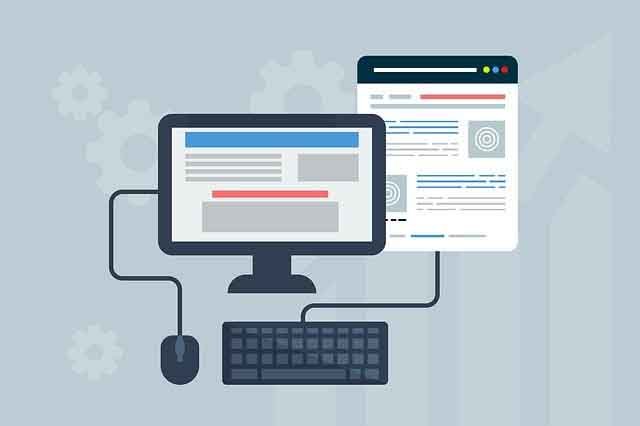

A Beginner's Guide to Website Building: What to Ask Your Developer
These days, having a website is essential for individuals and businesses alike. Whether your goal is to showcase your portfolio, start an online store, or establish an online presence for your company, a well-designed website is crucial. If you’re new to the world of website building, working with a developer can be a fantastic way to ensure your website turns out just the way you envision it. However, to make the most of this collaboration and get the most from your developer’s skills, you need to know what to ask your developer during the process. In this beginner’s guide to website building, we’ll outline key questions to help you communicate effectively with your developer and create a website that suits your needs.
1. What are your qualifications and experience?
Before diving into the specifics of your website project, it’s vital to get to know your developer. Ask about their qualifications and experience in website development. Have they worked on similar projects in the past? Do they have a portfolio you can review? Understanding their background will give you confidence in their ability to bring your vision to life.
2. What is the timeline for the project?
Time is often a critical factor when it comes to website development. Ask your developer for an estimated timeline for your project. This should include milestones and deadlines for different phases of the development process. Having a clear schedule will help you plan other aspects of your online presence accordingly.
3. What is the cost of the project and the payment structure?
Discussing the budget upfront is crucial. Ask your developer for a detailed breakdown of the project’s cost, including any potential additional expenses that may arise during development. Also, inquire about the payment structure. Will you pay a lump sum upfront or in installments as the project progresses? Learn more about the individual elements that make up the cost here: https://sears.co.in/website-cost-calculator/
4. Do you provide ongoing maintenance and support?
A website is not a one-time project. It requires ongoing maintenance, updates, and support. Ask your developer if they offer maintenance and support services after the website is launched. Knowing you have reliable support can give you peace of mind and ensure your website stays up to date.
5. What platform and technology stack will be used?
Understand the technologies and platforms your developer plans to use for your website. This could include content management systems (CMS) like WordPress, e-commerce platforms like Shopify, or custom-built solutions. Knowing the technology stack will help you gauge the website’s scalability and future customization options.
6. Can you explain the design and user experience (UX) process?
Discuss the design and UX process with your developer. How will they ensure your website is visually appealing and user-friendly? Will they create wireframes or prototypes for your approval before moving on to the development stage? A clear understanding of the design process will help you align your expectations.
7. How will SEO be incorporated into the website?
Search engine optimization (SEO) is essential for ensuring your website ranks well in search engine results. Ask your developer how they plan to incorporate SEO best practices into your website, including keyword optimization, meta tags, and site speed optimization.
8. What about mobile responsiveness and cross-browser compatibility?
With a growing number of users accessing websites on mobile devices, it’s crucial that your website is mobile-responsive and compatible with various browsers. Ensure your developer plans to optimize your website for all devices and browsers to provide a seamless user experience.
9. How will website security be handled?
Security is a top priority for any website. Inquire about the security measures your developer will put in place to protect your website from cyber threats and data breaches. This includes SSL certificates, regular security audits, and backup solutions.
10. What is the process for content updates and changes?
Understand how you can update and modify content on your website after it’s launched. Will you be provided with training or access to a user-friendly CMS? Clarify who will be responsible for future content updates.
11. Can you provide references or case studies?
Ask your developer for references or case studies from past clients. This will give you insights into their work quality and client satisfaction.
12. What is the plan for website hosting and domain registration?
Discuss hosting and domain registration with your developer. Will they handle these aspects for you, or do you need to set up hosting and domain registration separately?
13. What is the process for resolving issues and making changes after launch?
Understand how issues and changes will be addressed after the website is live. Is there a support ticket system, and what is the turnaround time for resolving issues?
14. Can you explain the testing and quality assurance process?
Ensure your developer has a thorough testing and quality assurance process in place to identify and rectify any bugs or issues before the website is launched.
15. What are the ownership and rights associated with the website?
Discuss ownership and rights related to the website’s design, code, and content. Clarify who will have control over these aspects once the project is completed.
16. What are the backup and disaster recovery plans?
Inquire about backup and disaster recovery plans to ensure your website’s data is safe and can be restored in case of unexpected events.
By asking these essential questions, you’ll be well-prepared to communicate effectively with your developer throughout the website building process. This beginner’s guide to website building shall ensure that the process of building your website shall be a rewarding experience. And with the right developer and clear communication, you can create a digital presence that serves your goals and engages your audience effectively.






One Response